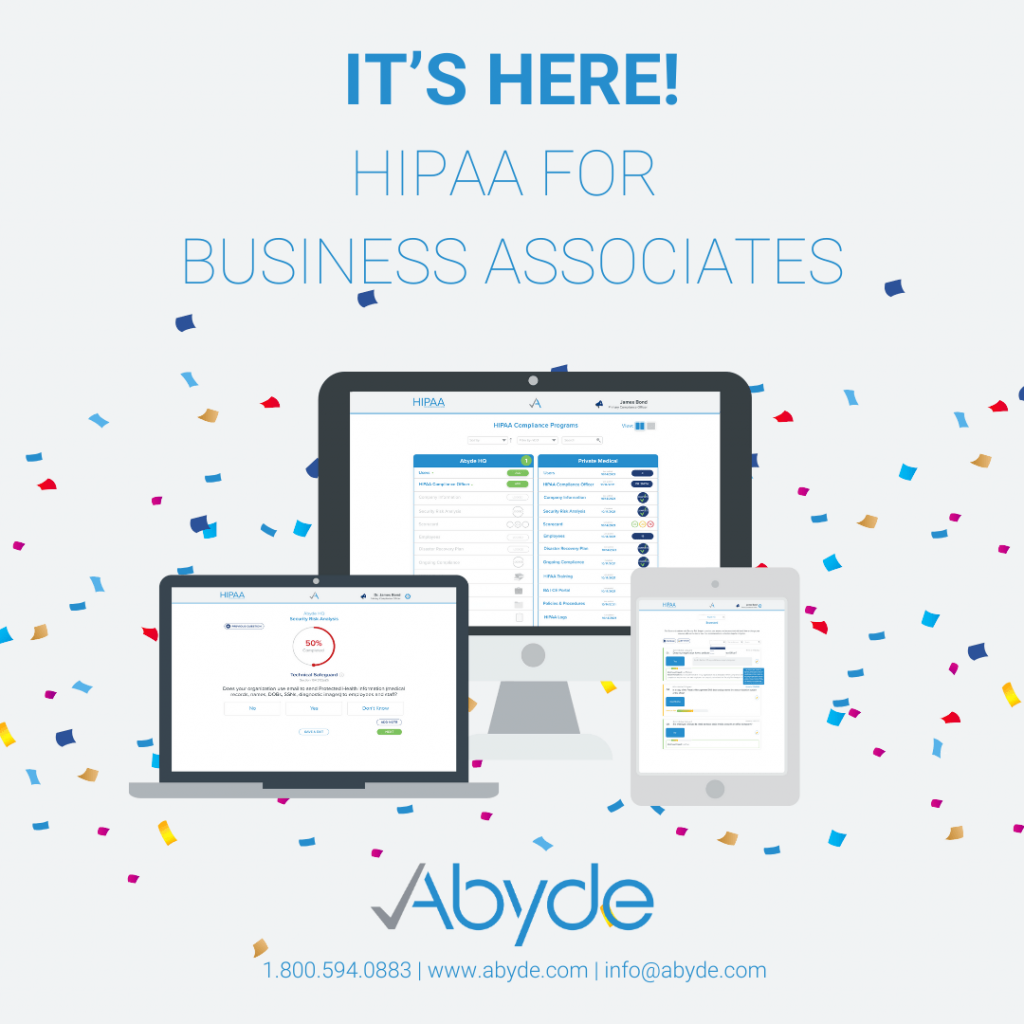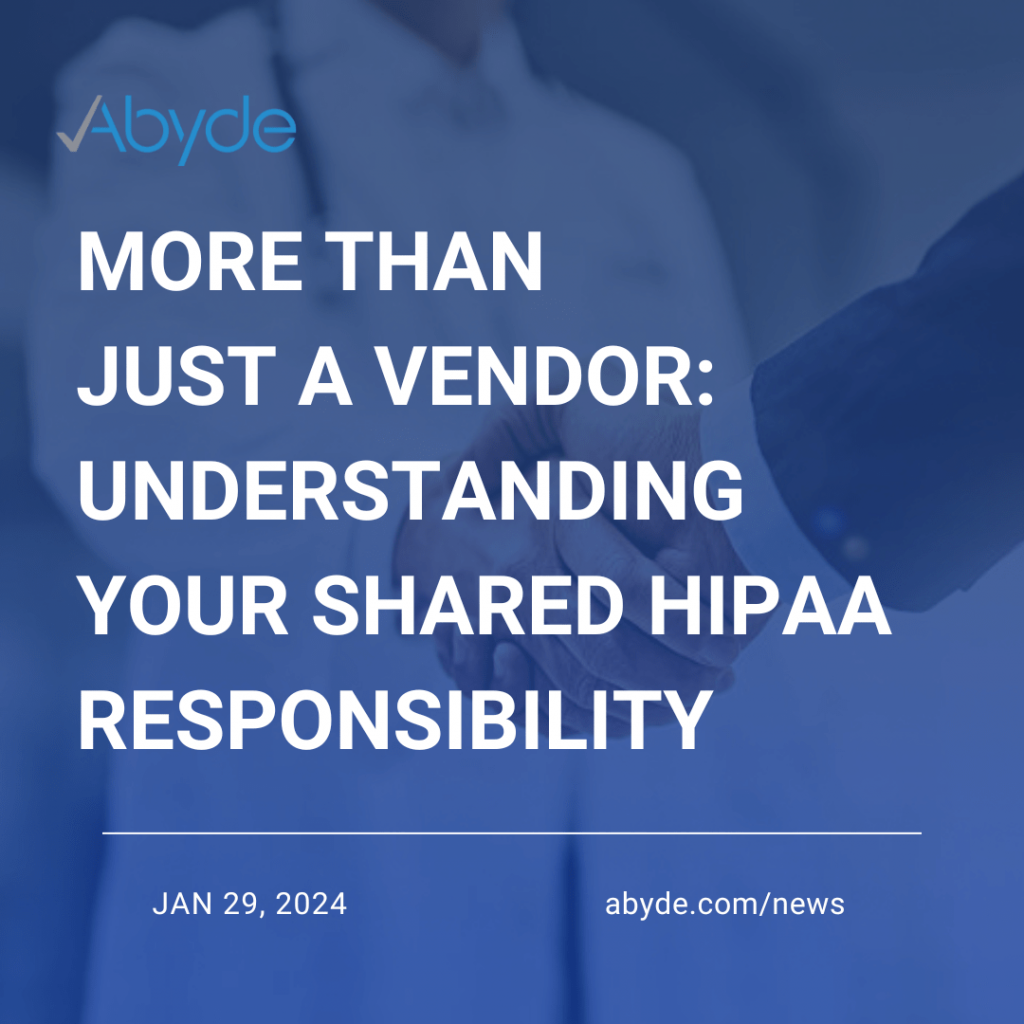February 21, 2024 While doctors, nurses, and researchers often take center stage in healthcare, there’s another critical group working tirelessly behind the scenes: medical couriers. These are the logistics ninjas, the delivery defenders, who ensure vital medical supplies, specimens, and documents reach the right place at the right time. Medical couriers go far beyond simply transporting packages. They handle protected health information (PHI) in various forms, making them subject to HIPAA compliance alongside healthcare providers and health plans. This means they share the responsibility of safeguarding patient privacy and security. Key Responsibilities in Compliance: HIPAA Compliance: A Shared Responsibility Healthcare providers rely on Business Associate Agreements (BAAs) to establish clear expectations and obligations for couriers regarding HIPAA compliance. These agreements outline: The Impact of Compliance: Effective HIPAA compliance by medical couriers benefits everyone: The Future of Couriers and Compliance The future of medical courier services might involve drones and autonomous vehicles for faster deliveries. However, the core responsibilities – data security, adherence to regulations, and understanding the impact on patient privacy – will remain central to their role as HIPAA business associates. Medical couriers are no longer just delivery personnel; they are crucial partners in ensuring healthcare compliance and safeguarding patient privacy. By understanding their critical role and responsibilities, we can appreciate their impact on a healthier and more secure healthcare system. For medical couriers and Business Associates in general, Abyde is your compliance solution. With our newest software, HIPAA for Business Associates, BAs can manage compliance with ease. HIPAA for BAs includes a robust security risk analysis, training for BAs, automated policies and procedures, dynamically generated Business Associate Agreements for Covered Entities and Sub-Business Associates, and much more. To learn more, email hipaa-ba@abyde.com and schedule an educational consultation here.
Abyde Launches HIPAA for Business Associates Software: Simplifying Compliance for Business Associates in Healthcare
February 19, 2024 CLEARWATER, FLORIDA, UNITED STATES, February 19, 2024 /EINPresswire.com/ — Abyde, a leading healthcare compliance software company, today announced the launch of its HIPAA for Business Associates software, a cloud-based solution designed to streamline compliance for organizations working with protected health information (PHI). The healthcare industry relies heavily on Business Associates (BAs) for various tasks, from claims processing to data analytics. However, navigating the complexities of HIPAA regulations can be challenging and time-consuming for BAs of all sizes. Abyde’s new solution addresses this concern by providing a user-friendly, comprehensive toolkit for BA compliance. “We understand the challenges Business Associates face in ensuring HIPAA compliance,” says Matt DiBlasi, President and CEO of Abyde. “Our HIPAA for Business Associates solution is designed to alleviate those burdens by simplifying the process and empowering these organizations to focus on their core business.” Key Features and Benefits: Intuitive Security Risk Analysis: Quickly identify and prioritize potential vulnerabilities with automated assessments. Interactive Training: Engage employees with compliance modules tailored to their roles and responsibilities. Dynamically Generated Policies and Procedures: Get customized policies and procedures built to meet your specific needs and industry standards. BA and Covered Entity (CE) Portal: Facilitate seamless document exchange with Covered Entities and Sub-Business Associates. Abyde Drive: Securely store and manage documents within the software (not including PHI). Additional Features: Incident management, breach incident report logs, and ongoing regulatory updates. Benefits for Business Associates: Reduced risk of non-compliance: Ensure ongoing adherence to HIPAA regulations and avoid costly penalties. Improved efficiency: Automate tasks and streamline workflows for a more efficient compliance process. Enhanced organization: Store and access documents with Abyde drive. Increased employee engagement: Foster a culture of compliance with interactive training and clear policies. Scalability: Adapt Abyde to your specific needs and grow with your business. Availability and Pricing:HIPAA for Business Associates is available starting today, Monday, February 19th, 2024. Abyde offers pricing plans to accommodate the needs of businesses of all sizes. Schedule a demo today to learn more. About Abyde:Abyde is a leading healthcare compliance software company dedicated to empowering organizations to navigate the complexities of compliance. With its suite of cloud-based solutions, Abyde makes compliance more accessible, efficient, and cost-effective. For more information, visit www.abyde.com. Contact: Penny SchweitzerAbyde+1 800-594-0883pschweitzer@abyde.comVisit us on social media:FacebookTwitterLinkedInInstagramYouTube
More Than Just a Vendor: Understanding Your Shared HIPAA Responsibility
January 29, 2024 As a Business Associate (BA) in the medical field, you’re not just another cog in the machine – you’re a HIPAA hero, wielding the power to safeguard patient data and build trust within the healthcare ecosystem. You’re entrusted with access to Protected Health Information (PHI) while providing services to a covered entity, such as a hospital, health plan, or healthcare provider. This PHI can include everything from patient names and demographic information to diagnoses, treatment plans, and billing records. Think of yourself as a data guardian, a digital knight protecting the kingdom of PHI: But fear not, HIPAA hero! You’re not alone in this noble quest. We, at Abyde, are your trusty sidekick, and we will soon be offering the tools and support with our new software to turn compliance into your superpower. The software will provide: Remember, HIPAA compliance isn’t just a legal obligation, it’s a noble cause. By joining forces with Abyde, you can transform from “just a vendor” to a data defender, a patient advocate, and a true HIPAA hero. Ready to unleash your inner hero? Contact Abyde today at info@abyde.com and schedule a consultation here to get started! P.S. No cape required (but bonus points if you do).
The Truth Behind Teamwork: Choosing the Right Sub-Business Associate
January 26, 2024 At Abyde, we know that the medical world isn’t all scalpels and stethoscopes. It’s a whirlwind of paperwork, regulations, and let’s remember, actual patients needing top-notch care. That’s where trusty Business Associates (BAs) step in, taking care of billing, document disposal, IT services, and more, ensuring that medical staff can focus on patients. But even reliable Business Associates need to find the right medical Sub-Business Associates. Unsure what that entails? Don’t worry, Abyde has you covered! By seeking the right skills and qualities in Sub-Business Associates, and nurturing a supportive work environment, you can build a powerful team that elevates your organization to new heights. A reliable and skilled Sub-Business Associate is an investment in your success, ensuring the smooth operation and exceptional care that defines your commitment to patients. If you want to learn more about choosing the right sub-business associates, email us at info@abyde.com and schedule a consultation here.
When & Why You Need a Business Associate Agreement
April 20, 2021 We’ve all heard the saying ‘sharing is caring’ but sometimes doing a good deed could actually steer you into some consequences later down the road. Let’s say, for example, you just loaned your car to your best bud whose “quick trip to the store” actually consisted of running red lights and racking up parking tickets. Though you might not have been the one in the driver’s seat – your name will be the one on all of the lovely fines that wind up in your mailbox, not your BFF’s. Now you’re probably wondering where we’re going with all of this. And while cars and protected health information (PHI) might not have a whole lot in common, it goes to show how certain situations in life require additional precautions to minimize the risk of being responsible for another’s wrongful actions. This idea rings especially true when it comes to working with and sharing something as valuable as sensitive health information. HIPAA law provides a pretty specific roadmap for how your practice should be safeguarding PHI and outlines certain standards that if not met – could result in a hefty fine. But with all the government requirements, advancements in technology, and changing patient needs – it’s impossible today to run a practice without the help of third-party vendors. So whether it be an outside medical billing company, IT support, or document shredding company – any vendor that comes into contact with PHI is a business associate (BA) of your practice and requires their own set of directions for proper handling. Just as covered entities have obligations under HIPAA law, so do business associates – with one of the most important being a documented and signed Business Associate Agreement (BAA). A BAA is essentially a written agreement between your organization and the business associate, specifying each party’s responsibilities when accessing and maintaining PHI and it offsets the liability so that your practice can take a backseat if any incidents were to occur. As you probably wouldn’t hand over your keys to just anyone without laying down some ground rules first, the same goes for providing access to patients’ sensitive health information. Like most contracts, the terms and conditions in a proper BAA can be pretty lengthy and may vary based on the type of vendor you’re working with – but here are some of the basic HIPAA requirements that should be outlined: Permitted uses and disclosures of PHI Specific safeguards that the BA is expected to establish Breach Notification requirements Policies and procedures for providing PHI access at your practice’s or patient’s request Business Associate Training requirements Guidelines for how PHI should be returned or destroyed upon termination of the BAA Meeting all the requirements for what should be included in a BAA is just the first stretch of the drive, and something we’re often asked is, “What if one of my vendors refuses to sign?” Given the fact that having a signed BAA with all vendors you work with is a HIPAA requirement, it’s probably a good idea to put the brakes on any working relationship with a vendor who can’t agree to your terms and conditions. Just last year a medical practice found itself a victim of a HIPAA hit and run after filing a breach report stating that their EHR company was blocking access to the practices’ ePHI in exchange for $50,000 to be paid by the practice. While it might seem pretty obvious that the business associate was the driving force of the incident, because there was no BAA in place – the $100,000 in damage fell solely on the provider. A Business Associate Agreement not only lays out the rules of the road for how PHI should be handled but holds the BA directly liable for any non-compliance that happens when they’re behind the wheel. Having a proper agreement in place with each and every vendor you work with ensures that they’re best protecting your patients’ PHI and means that your practice can steer clear of the hefty HIPAA fines if they don’t.
Who Qualifies as a Business Associate?
May 8, 2020 As a business owner, you know there are a lot of elements that go into running a successful healthcare practice. It’s common to have third-party companies assist with everything from accounting, to document disposal, to managing remote operations through cloud sharing and telehealth services. These vendors may be a big part of keeping your practice running smoothly. While you may already do a fantastic job of checking your contracts with these vendors – your terms of service, payments, etc. – where many practices fall short is in reviewing your vendor’s obligations to protect your sensitive patient information. As a healthcare provider, your practice functions as a covered entity, and any vendor that comes into contact with PHI in the process of working with your practice becomes a Business Associate (BA). Not all companies that your practice hires come into contact with PHI, so how do you know who exactly qualifies as a Business Associate? The HHS defines a Business Associate as any organization that creates, receives, maintains, or transmits PHI on behalf of a covered entity. Some examples of Business Associates include: Once you determine who is considered a Business Associate to your practice, you must then institute formal agreements to ensure your practice and your third-party vendors are properly protecting the security of your patient information. This agreement highlights the specific elements of HIPAA compliance that should be followed by both you and each of your Business Associates, including: Even if a vendor comes into contact with your PHI only once, it’s better to play it safe and have the proper agreements in place – just that one instance could be the catalyst for a breach of PHI. Not having the proper Business Associate agreements in place has been the cause of hundreds of HIPAA violations. One case, in particular, cost a medical practice in Utah a $100,000 settlement on top of a two-year corrective action plan. The practice filed a complaint against their EHR company who allegedly had been blocking access to patients’ ePHI. Although it might seem like the practice was a victim in this situation, the OCR found that there was no Business Associate Agreement in place – leaving the liability solely on the practice’s shoulders. Data breaches, cyber-attacks, and improper handling of PHI can happen to your practice at any time as well as the companies you work with – especially when operating remotely or bringing on new vendors to help manage operations. Ensuring that you have the proper agreements in place is vital in not only protecting your patient data but offsetting the liability of your practice in the case of a breach. A software solution like Abyde makes this process a whole lot easier with a Business Associate Portal that automatically generates formal agreements with all the proper policies and procedures in place – taking the stress of HIPAA compliance off you and your vendors.
Missing Business Associate Agreement with EHR Vendor Leads to $100,000 Fine
March 3, 2020 Announced today, a medical practice in Utah has come to a $100,000 settlement with the OCR for their failure to meet HIPAA requirements under the Security Rule. The practice of Steven A. Porter, M.D. received the $100,000 monetary settlement in addition to submitting to a corrective action plan over the next two years after a breach report led to the OCR’s investigation of the practice’s HIPAA compliance program. The investigation began after the practice filed a breach report regarding a complaint against a Business Associate of the practice’s EHR company. The Business Associate (BA) was blocking access to the practices’ patient’s electronic protected health information in exchange for $50,000 to be paid by the practice. While the original complaint was against the BA, once the investigation was initiated by the Office for Civil Rights, it was the practice that found themselves in the government’s crosshairs. Within the compliance review, the OCR had found that the practice had failed to do the following: Unfortunately for the practice, their lack of proper safeguarding and documentation of compliance cost them a hefty fine and put their patient’s PHI at risk. This breach, and corresponding financial settlement, highlights that even when working with typical healthcare vendors, such as EHR providers, the right Business Associate Agreements and HIPAA-compliant policies are required to prevent impermissible safeguarding or access to PHI. OCR Director, Roger Severino, included a statement in the HHS press release regarding the incident. “All health care providers, large and small, need to take their HIPAA obligations seriously, the failure to implement basic HIPAA requirements, such as an accurate and thorough risk analysis and risk management plan, continues to be an unacceptable and disturbing trend within the healthcare industry.” This fine follows a recent article highlighting the OCR’s focus on “low hanging fruit” and commitment to address an ongoing lack of HIPAA compliance among covered entities. As these violations continue to see costly outcomes, it is more important now than ever to ensure your practice has a full HIPAA program in place.






